Samuel T. Coleridge is one of the most important figures in English poetry. His poems influenced all the major poets of the age. He was known by his contemporaries as a meticulous craftsman who was more rigorous in his careful reworking of his poems than any other poet, and Southey and Wordsworth were dependent on his professional advice. His influence on Wordsworth is particularly important because many critics have credited Coleridge with the very idea of Conversational Poetry. The idea of utilizing common, everyday language to express profound poetic images and ideas for which Wordsworth became famous may have originated in Coleridge’s mind. It is difficult to imagine Wordsworth’s great poems, The Excursion or The Prelude, ever having been written without the direct influence of Coleridge’s originality.
As important as Coleridge was to poetry as a poet, he was equally important to poetry as a critic. His philosophy of poetry, which he developed over many years, has been deeply influential in the field of literary criticism.
CHILDHOOD
Samuel T. Coleridge was born on 21 October 1772 in the town of Ottery St Mary in Devon, England. Samuel’s father was the Reverend John Coleridge (1718–1781), the well-respected vicar of St Mary’s Church, Ottery St Mary and was headmaster of the King’s School, a free grammar school established by King Henry VIII (1509–1547) in the town. He had three children by his first wife. Samuel was the youngest of ten by the Reverend Mr. Coleridge’s second wife, Anne Bowden (1726–1809). Samuel didn’t like sports but instead read “incessantly” and played by himself.
Early Education
After his father died in 1781, eight-year-old Samuel was sent to Christ’s Hospital, a charity school which was founded in the 16th century in Greyfriars, London, where he remained throughout his childhood, studying and writing poetry. At that school Coleridge became friends with Charles Lamb, a schoolmate, and studied the works of Virgil and William Lisle Bowles. At six years old he read Belisarius, Robinson Crusoe, Philip Quarll, and Arabian Nights. He learned from and Shakespeare and Milton. He learned from them that Poetry, even that of the loftiest, and, seemingly, that of the wildest odes, had a logic of its own, as severe as that of science; and more difficult, because more subtle, more complex, and dependent on more, and more fugitive causes.
JESUE COLLEGE
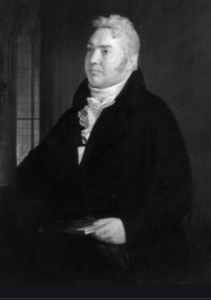 From 1791 until 1794, Coleridge attended Jesus College, Cambridge. “In 1792, he won the Browne Gold Medal for an ode that he wrote on the slave trade. In December 1793, he left the college and enlisted in the 15th (The King’s) Light Dragoons using the false name “Silas Tomkyn Comberbache. His brothers arranged for his discharge a few months later under the reason of “insanity” and he was readmitted to Jesus College, but never receive a degree from the university. At Jesus College, Coleridge was introduced to political and theological ideas then considered radical, including those of the poet Robert Southey with whom he collaborated on the play The Fall of Robespierre. Coleridge. The two friends founded a utopian commune-like society, called Pantisocracy, in the wilderness of Pennsylvania. In 1795, the two friends married sisters Sara and Edith Fricker, in St Mary Redcliffe, Bristol. He was unhappy and after the birth of their fourth child he left the marriage.
From 1791 until 1794, Coleridge attended Jesus College, Cambridge. “In 1792, he won the Browne Gold Medal for an ode that he wrote on the slave trade. In December 1793, he left the college and enlisted in the 15th (The King’s) Light Dragoons using the false name “Silas Tomkyn Comberbache. His brothers arranged for his discharge a few months later under the reason of “insanity” and he was readmitted to Jesus College, but never receive a degree from the university. At Jesus College, Coleridge was introduced to political and theological ideas then considered radical, including those of the poet Robert Southey with whom he collaborated on the play The Fall of Robespierre. Coleridge. The two friends founded a utopian commune-like society, called Pantisocracy, in the wilderness of Pennsylvania. In 1795, the two friends married sisters Sara and Edith Fricker, in St Mary Redcliffe, Bristol. He was unhappy and after the birth of their fourth child he left the marriage.
POEMS ON VARIOUS SUBJECTS
In 1796 he released his first volume of poems entitled Poems on various subjects, which also included four poems by Charles Lamb as well as a collaboration with Robert Southey and a work suggested by his and Lamb’s schoolfriend Robert Favell. Among the poems were Religious Musings, Monody on the Death of Chatterton and an early version of The Eolian Harp entitled Effusion 35. A second edition was printed in 1797, this time including an appendix of works by Lamb and Charles Lloyd, a young poet to whom Coleridge had become a private tutor. In 1796 he also privately printed Sonnets from Various Authors, including sonnets by Lamb, Lloyd, Southey and himself as well as older poets such as William Lisle Bowles.
COLERIDGE COTTAGE
The years 1797 and 1798, during which he lived in what is now known as Coleridge Cottage, in Nether Stowey, Somerset, were among the most fruitful of Coleridge’s life. In 1795, Coleridge met poet William Wordsworth and his sister Dorothy. The Rime of the Ancient Mariner, Coleridge composed the symbolic poem Kubla Khan, this came from an opium induced dream. Coleridge and Wordsworth published a joint volume of poetry, Lyrical Ballads, which proved to be the starting point for the English romantic age. Wordsworth may have contributed more poems, but the real star of the collection was Coleridge’s first version of The Rime of the Ancient Mariner. It was the longest work and drew more praise and attention than anything else in the volume.
MARY STREET UNITARIAN CHAPEL
In 1798 he preached at the Mary Street Unitarian Chapel. William Hazlitt, a Unitarian minister’s son, was in the congregation, having walked from Wem to hear him. Coleridge received a letter from Josiah Wedgwood II, who had offered to help him out of financial difficulties with an annuity of £150 per year on condition he give up his ministerial career. Coleridge accepted this.
TRAVELING
From 16 September 1798, Coleridge and the Wordsworth’s left for a stay in Germany; Coleridge soon went his own way and spent much of his time in university towns. In February 1799 he enrolled at the University of Göttingen, where he attended lectures by Johann Friedrich Blumenbach and Johann Gottfried Eichhorn. He became interested in German philosophy, especially the transcendental idealism and critical philosophy of Immanuel Kant, and in the literary criticism of the 18th-century dramatist Gotthold Lessing. Coleridge studied German and, after his return to England, translated the dramatic trilogy Wallenstein by the German Classical poet Friedrich Schiller into English. He continued to pioneer these ideas through his own critical writings for the rest of his life.
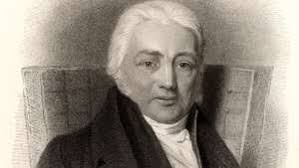 SOCKBURN
SOCKBURN
In 1799, Coleridge and the Wordsworth’s stayed at Thomas Hutchinson’s farm on the River Tees at Sockburn, near Darlington.
It was at Sockburn that Coleridge wrote his ballad-poem Love, addressed to Sara Hutchinson. The poem was a direct inspiration for John Keats‘ famous poem La Belle Dame Sans Merci.
Coleridge’s early intellectual debts, besides German idealists like Kant and critics like Lessing, were first to William Godwin‘s Political Justice, especially during his Pantisocratic period, and to David Hartley‘s Observations on Man, which is the source of the psychology which is found in Frost at Midnight.
Coleridge was critical of the literary taste of his contemporaries, and a literary conservative insofar as he was afraid that the lack of taste in the ever-growing masses of literate people would mean a continued desecration of literature itself.
ENGLAND
In 1800, he returned to England and shortly thereafter settled with his family and friends in Greta Hall at Keswick in the Lake District of Cumberland to be near Grasmere, where Wordsworth had moved. He was a houseguest of the Wordsworth’s his dependency on laudanum grew and his frequent nightmares would wake the children. He was a fussy eater.
In 1802, Coleridge took a nine-day walking holiday in the fells of the Lake District. Coleridge is credited with the first recorded descent of Scafell to Mickledore via Broad Stand.
A Christmas Carol 1772-1834
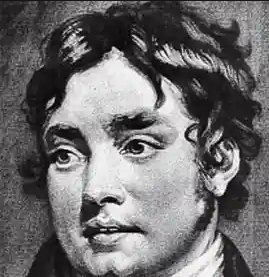 The Shepherds went their hasty way,
The Shepherds went their hasty way,
And found the lowly stable-shed
Where the Virgin-Mother lay:
And now they checked their eager tread,
For to the Babe, that at her bosom clung,
A Mother’s song the Virgin-Mother sung.
They told her how a glorious light,
Streaming from a heavenly throng,
Around them shone, suspending night!
While sweeter than a Mother’s song,
Blest Angels heralded the Savior’s birth,
Glory to God on high! and Peace on Earth.
She listened to the tale divine,
And closer still the Babe she pressed;
And while she cried, the Babe is mine!
The milk rushed faster to her breast:
Joy rose within her, like a summer’s morn;
Peace, Peace on Earth! the Prince of Peace is born.
Thou Mother of the Prince of Peace,
Poor, simple, and of low estate!
That Strife should vanish, Battle cease,
O why should this thy soul elate?
Sweet Music’s loudest note, the Poet’s story,
Did’st thou ne’er love to hear of Fame and Glory?
And is not War a youthful King,
A stately Hero clad in Mail?
Beneath his footsteps laurels spring;
Him Earth’s majestic monarchs hail
Their Friend, their Playmate! and his bold bright eye
Compels the maiden’s love-confessing sigh.
“Tell this in some more courtly scene,
“To maids and youths in robes of state!
“I am a woman poor and mean,
“And therefore is my Soul elate.
“War is a ruffian, all with guilt defiled,
“That from the aged Father tears his Child!
“A murderous fiend, by fiends adored,
“He kills the Sire and starves the Son;
“The Husband kills, and from her board
“Steals all his Widow’s toil had won;
“Plunders God’s world of beauty; rends away
“All safety from the Night, all comfort from the Day.
“Then wisely is my soul elate,
“That Strife should vanish, Battle cease:
“I’m poor and of a low estate,
“The Mother of the Prince of Peace.
“Joy rises in me, like a summer’s morn:
“Peace, Peace on Earth, the Prince of Peace is born.”
This poem is in the public domain.
ACTING PUBLIC SECRETARY OF MALTA
In 1804, he travelled to Sicily and Malta, working for a time as Acting Public Secretary of Malta under the Civil Commissioner, Alexander Ball, a task he performed successfully. He lived in San Anton Palace in the village of Attard. He returned to England in 1806. From 1807 to 1808, Coleridge returned to Malta and then travelled in Sicily and Italy. Coleridge became a full-blown opium addict, using the drug as a substitute for the lost vigor and creativity of his youth.
He separated from his wife Sara in 1808, quarreled with Wordsworth in 1810, lost part of his annuity in 1811, and put himself under the care of Dr. Daniel in 1814. His addiction caused severe constipation, which required regular and humiliating enemas.
THE FRIEND
In 1809, Coleridge became a newspaper publisher with the publication of the journal entitled The Friend. Coleridge was disorganized and had no head for business. Coleridge financed the journal by selling over five hundred subscriptions, some members of Parliament. In 1809, the publication was crippled by a financial crisis and Coleridge had to have financial help. Conversation Sharp and Tom Poole and other friends came to his rescue. Years after its initial publication, a revised and expanded edition of The Friend, with added philosophical content including his ‘Essays on the Principles of Method’, became a highly influential work and its effect was felt on writers and philosophers from John Stuart Mill to Ralph Waldo Emerson.

 What does Art have to do with the Rose Parade? The answer is everything.
What does Art have to do with the Rose Parade? The answer is everything. The group has 935 members, each of whom is assigned to one of 34 committees, and around 50 student ambassadors. The volunteers wear while with a red tie.
The group has 935 members, each of whom is assigned to one of 34 committees, and around 50 student ambassadors. The volunteers wear while with a red tie.

 From 1791 until 1794, Coleridge attended
From 1791 until 1794, Coleridge attended 
 The Shepherds went their hasty way,
The Shepherds went their hasty way,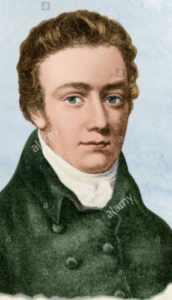 These lectures were heralded in the prospectus as “A Course of Lectures on Shakespeare and Milton, in Illustration of the Principles of Poetry.” Coleridge’s ill-health, opium-addiction problems, and somewhat unstable personality meant that all his lectures were plagued with problems of delays and a general irregularity of quality from one lecture to the next. However, it was the lecture on
These lectures were heralded in the prospectus as “A Course of Lectures on Shakespeare and Milton, in Illustration of the Principles of Poetry.” Coleridge’s ill-health, opium-addiction problems, and somewhat unstable personality meant that all his lectures were plagued with problems of delays and a general irregularity of quality from one lecture to the next. However, it was the lecture on  t. Michael’s plans to restore the crypt and allow public access. Says vicar Kunle Ayodeji of the plans: “we hope that the whole crypt can be cleared as a space for meetings and other uses, which would also allow access to Coleridge’s cellar.”
t. Michael’s plans to restore the crypt and allow public access. Says vicar Kunle Ayodeji of the plans: “we hope that the whole crypt can be cleared as a space for meetings and other uses, which would also allow access to Coleridge’s cellar.”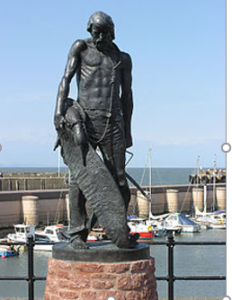 Kubla Khan
Kubla Khan This is a book I wrote when I worked in hospital billing. I couldn’t believe how many people did not know how their insurance worked. Do you?
This is a book I wrote when I worked in hospital billing. I couldn’t believe how many people did not know how their insurance worked. Do you?
 I have battled low self-esteem my entire life and I will share with you how I finally accomplished boosting my self-esteem and believing in myself.
I have battled low self-esteem my entire life and I will share with you how I finally accomplished boosting my self-esteem and believing in myself. Suddenly, one day, something earth-shattering happens. Maybe it’s the death of a family member or child or maybe it’s something else. Life as you know it has ended. Now you have to make a life-changing decision.
Suddenly, one day, something earth-shattering happens. Maybe it’s the death of a family member or child or maybe it’s something else. Life as you know it has ended. Now you have to make a life-changing decision. Remember a year ago when you and your heartthrob would go to bed together in the same bed. When sex was a good thing. Now having sex with your heartthrob can kill you. The world turns on its axis and never stays in one place. But we are human beings and we do not stay in one spot. We move, groove, love, kiss, hug. What is wrong with this sentence. What is wrong is that was the past. Now is the Covid 19. Times have changed and we have to change with them.
Remember a year ago when you and your heartthrob would go to bed together in the same bed. When sex was a good thing. Now having sex with your heartthrob can kill you. The world turns on its axis and never stays in one place. But we are human beings and we do not stay in one spot. We move, groove, love, kiss, hug. What is wrong with this sentence. What is wrong is that was the past. Now is the Covid 19. Times have changed and we have to change with them.